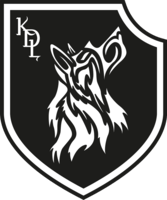The sleep of the dog, like the gentle sleep of the cat, has been observed and revealed in its most curious aspects by vets.
However, much less is known about the sleep of the wolf, a privileged witness to Almo Nature initiatives and a close relative of the domestic dog.
A recent study has once again tackled the subject of the most elusive of wild animals, as reported in the New York Times.
Dogs or wolves: which sleeps more?
Over a period of fifty years, the study analysed the behaviour and interactions of wolves with their prey on Isle Royale, a wild island near Lake Superior.
Under the microscope, of course, was one of the animal’s most important tasks: hunting. To survive in the exceptional environment of the pack, they must carry out this laborious activity which, once completed, will provide them with a long and well-deserved rest. In fact, after sometimes spending hours eating, predators rest or sleep around 30% of the time.
This is quite a different attitude from that displayed by man’s best friend, who does not have to go to the trouble of catching prey because he is fed by his master. Also, depending on their personality and physical conformation, dogs cannot be firmly framed in sleep patterns and often have short, frequent rest periods throughout the day.
Sleep in dogs and wolves: the importance of nutrition
The wolf’s habits have an impact on its metabolism: on a daily basis, it burns 70% more calories than any other animal similar in size and type, and during hunting, it burns 10-20 times more calories than when resting.
As the authors of the study point out, predators have to cope with adversity: « When food is abundant, wolves spend a lot of time resting because they can afford to. When food is scarce, on the other hand, they spend a lot of time resting because they need to ».
As a result, they may only eat once every 5-10 days, losing 8-10% of their weight if they don’t find enough food, and then recovering it after eating and sleeping.
It’s an adventurous and fascinating life, as highlighted in the video The Art in Being Wolf, which reminds us how wolves are both similar to and very different from dogs.
Dogs can’t fit into this wild diet, but they do need a balanced diet in which protein plays a crucial role.
Artificial intelligence translation of an original text by Almo Nature (Thanks for permission to publish)
Click here to read the French version

